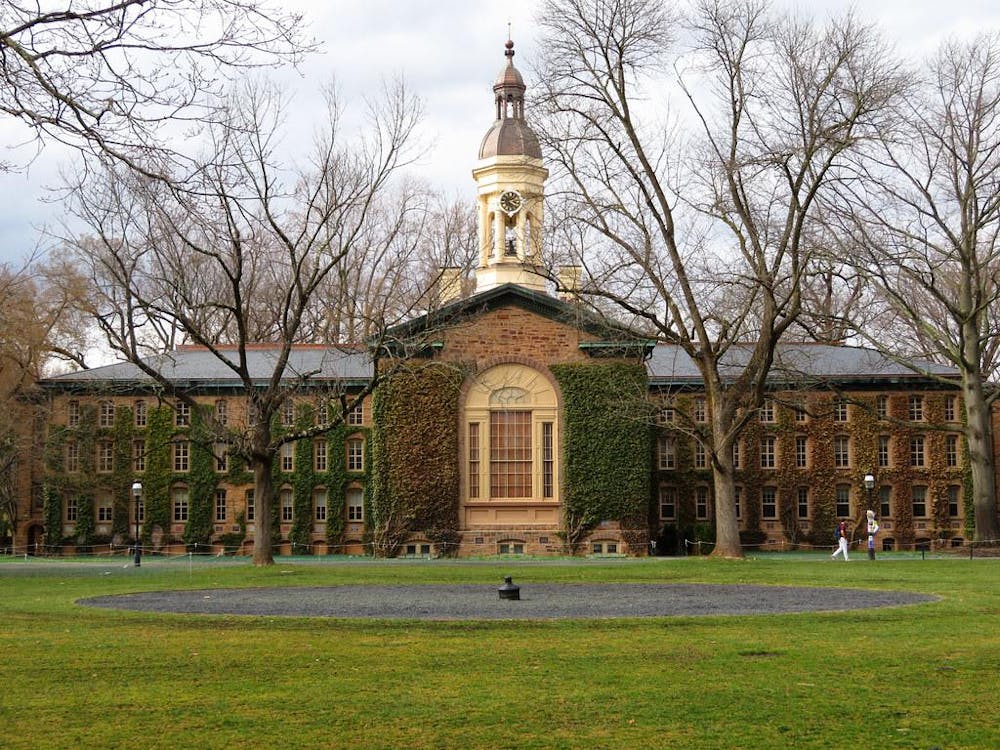Toto, we’re not in Princeton anymore.
Standing outside of Penn Station, I could not stop staring. Coming from the town used to film The Stepford Wives and President Bush’s campaign video, I had never actually seen a real drag queen up close. However hysterical I find the thought of a perky, Ralph Lauren-cable-knit-wearing poster mom bumping into Scarlett on her way out of the hair salon on a Tuesday morning, it just wouldn’t happen in small-town Connecticut.
So there I was, minding my own business, until the girl behind me spoke up.
“Hey, I love your bag!”
At first I thought she was talking to me, but then I realized her gaze was fixed on Scarlett. Obviously my Strand canvas couldn’t compare to a Powderpuff evening purse.
“Why, thank you, darling. I bought it last week on Canal Street. Isn’t it fabulous?”
Scarlett turned around, and the two of them embarked on an energetic exchange about all things puffy and powdery, leaving me stuck in the middle. “Awkward turtle” would be a gross understatement.
But I played it cool, laughing casually as I received an imaginary text from an imaginary friend. I was cool as water, cool as ice, cool as freakin’ Antarctica.
So yeah, maybe I wasn’t so cool. OK, I admit it. I was uncomfortable. But I couldn’t understand why. I am a bastion of liberalism. Pro-gay rights, pro-feminism, pro-health care reform, pro-taxing the rich. I could be a Communist. I mean it. Karl put his marks all over me and christened me a liberal for life.
But the point is that this feeling of awkward self-consciousness was utterly new to me. I wanted to join the conversation — to ask him about his outfit, where he was headed, and his affinity for those three fighting female prepubescents. Yet, when confronted with someone so far outside of my comfort zone, I found myself oddly paralyzed.
After the incident, I immediately forced Scarlett out of my head. Blaring evidence of my inherent conservatism was certainly not something I wanted to shout from the rooftops. But then I started reading the book assigned this week for my women’s studies class: “Gender Outlaw” by Kate Bornstein. A transsexual lesbian woman, she begins the book with the story of her 5-year-old neighbor walking right up to her and asking, “So, are you a boy or a girl?”
“I tell people that I’ve never been hurt by an honest question, and that’s true: It’s a cruel opinion that hurts, not a question,” writes Bornstein. “But people still don’t ask questions easily. It’s ‘good manners’ to say and ask nothing, and that’s sad.”

This got me thinking: Why couldn’t I be more like that little girl? Why couldn’t I set aside my uncomfortable self-awareness and just have seen the situation for what it was: two human beings with differences trying to find out more about each other. I realized that I can claim liberalism all I want, but if I shy away from asking the tough questions, there is a limit to how far my supposed attitude of tolerance can go.
I waited in that taxi line for 20 minutes, and in just that brief period of time, eight people made rude comments as they walked by Scarlett. They said things like “Nice dress, buddy” and “Grow some balls, homo.” One even asked, “You headed to the freak show?”
I know asking questions can’t solve all our prejudice issues. Preconceived notions often run way too deep for that. And no, people aren’t always going to be in the mood to play 20 Questions. I know I can’t demand a life story from anyone I find intriguing. But in any case, questions give us a place to start. Having curiosity, and having the courage to verbalize that curiosity, brings our uncertainties out into the open. It forces us to confront our discomfort instead of just shutting it away, like I did after leaving that taxi line.
Looking back, I’m sure Scarlett would have much preferred my honest curiosity about his lifestyle to my awkwardly averted gaze. After all, he jumped at the chance to talk to the girl behind me. It was obvious he didn’t just want to stay silent. If I had just had the courage to ask some simple questions, I could have left Penn Station with a newfound understanding of transgender culture, confident in my conviction that frankly, my dear, it’s just drag.
Caroline Kitchener is a freshman from New Canaan, Conn. She can be reached at cakitche@princeton.edu.








